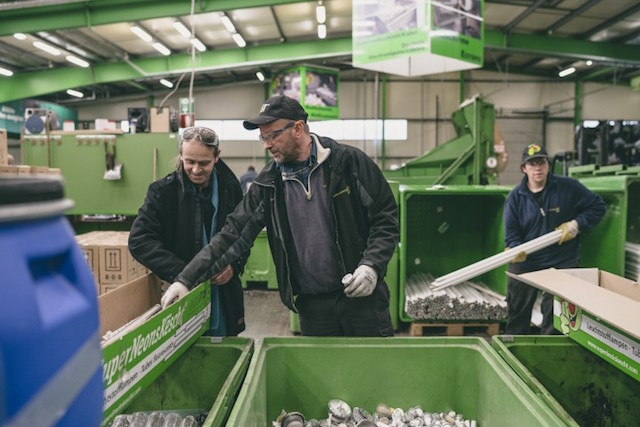Air pollution and the related health concerns through traffic and low fuel taxation are also highlighted in a European Commission report issued this month.
The comments were part of the commission’s 2016 review on the implementation of environmental protection in Luxembourg.
Highlighting the positive points first:
“Luxembourg is the best performer in the EU in terms of resource productivity, i.e. how efficient the economy uses material resources to produce wealth. There is a strong public support for circular economy and resource efficiency concretized in initiatives such as the SuperDreckskëscht & Fit4Circularity schemes.”
SMEs in Luxembourg have taken actions to use more efficiently resources and reduced their production costs by 30%.
The circular economy is supported by the government through:
“the development of economic activity zones and ‘eco-neighbourhoods’ based on circular principles. These zones promote low-carbon mobility, industrial symbiosis and collaborative consumption.”
Luxembourg has improved its score on eco-innovation since 2011, now ranking 6th EU-wide. The government strongly supports eco-innovation, sustainable development and the circular economy. The report noted that the market for eco-innovation is small, but flexible in Luxembourg.
“At the same time, the interdependency of Luxembourg and its geographic neighbours is strong, putting pressure on the demand for housing, services and infrastructures, generating considerable transport flows,” according to the commission’s “Environmental Implementation Review”, which was released on 3 February.
High waste levels in Luxembourg
Municipal waste generation in Luxembourg is considerably high compared to the EU average (616 kg/y/inhabitant compared to around 475 kg on average). In 2014, 47% of municipal waste is recycled (including composting); the target is 65% by 2030. Incineration counts for 35%. The report states that:
“Full implementation of the existing legislation could create more than 200 jobs in Luxembourg and increase the annual turnover of the waste sector by €24m. Moving towards the targets of the Roadmap on resource efficiency, could create over 400 additional jobs and increase the annual turnover of the waste sector by over €45m.”
Birds in danger
While 20% of breeding bird species show increasing population trends, 31% are decreasing. The EU commission notes that:
“The intensification of agricultural practices, urban and suburban development and an increased density of transportation infrastructure are the main driving forces affecting biodiversity in Luxembourg. While the overall status of biodiversity is still difficult to assess, national red lists, landscape statistics and monitoring of selected species often show negative trends.”
Diesel cars responsible for pollution
While levels of pollution of certain chemicals have decreased significantly, the pollutants nitrogen oxides and volatile organic compounds are still above recommended ceilings. It notes that this is partly due to emissions from diesel vehicles, particularly in Luxembourg city, where in 2014:
“exceedances above the EU air quality standards have been registered for nitrogen dioxide. (…) Furthermore, target values and long-term objectives for ozone concentrations are exceeded.”
The share of diesel cars in Luxembourg is 66%, compared to the EU average of 44% in 2013. However, diesel buses have been replaced in the City of Luxembourg.
Impact on people’s health and on the economy
“It is estimated that the health-related external costs from air pollution in Luxembourg are above €859 million/year (income adjusted, 2010), which include not only the intrinsic value of living a full health life but also direct costs to the economy. These direct economic costs relate to 98,000 workdays lost each year due to sickness related to air pollution, with associated costs for employers of €32 million/year (income adjusted, 2010), for healthcare of above €3 million/year (income adjusted, 2010), and for agriculture (crop losses) of €18 million/year (2010).”
Green taxation
Taxation and other financial incentives can be an effective way to ensure that “product prices better reflect environmental costs”. Environmentally harmful subsidies can also be phased out. The report states clearly that in Luxembourg, “the tax rate on diesel fuel is 62% of the petrol tax rate and this differential does not reflect the respective social costs associated with it.”
A study by the Luxembourg government indicates that:
“in 2012, the total cost of ‘fuel tourism’ amounted to approximately €3.5 billion per year considering ecological and heal the negative impacts on a national and international level. This cost clearly prevails over the economic profits that may be associated with these sales (€3.5 billion against €2.1 billion).”
Luxembourg therefore, in the commission’s view, has considerable scope to increase environmental taxes to shift and shape behavior.
